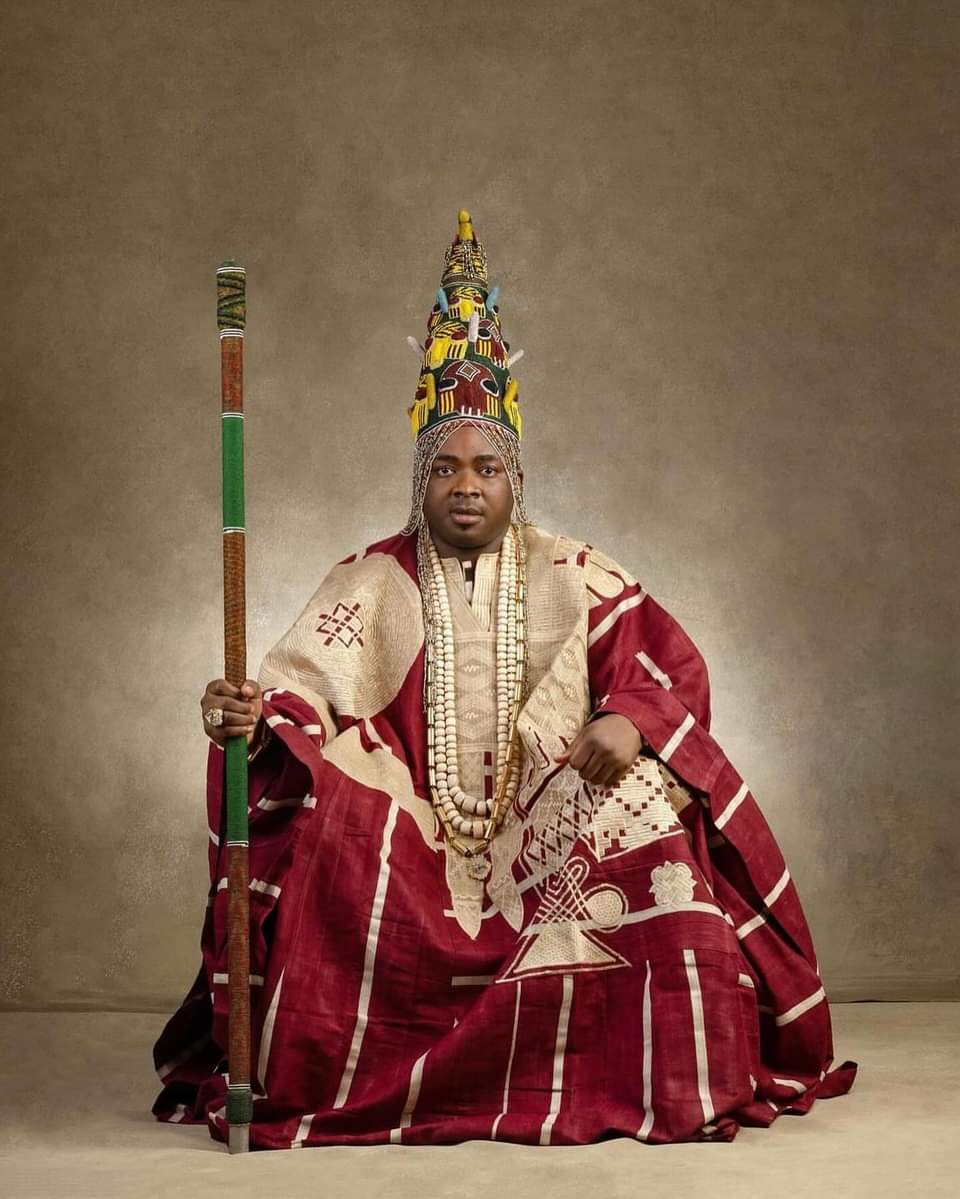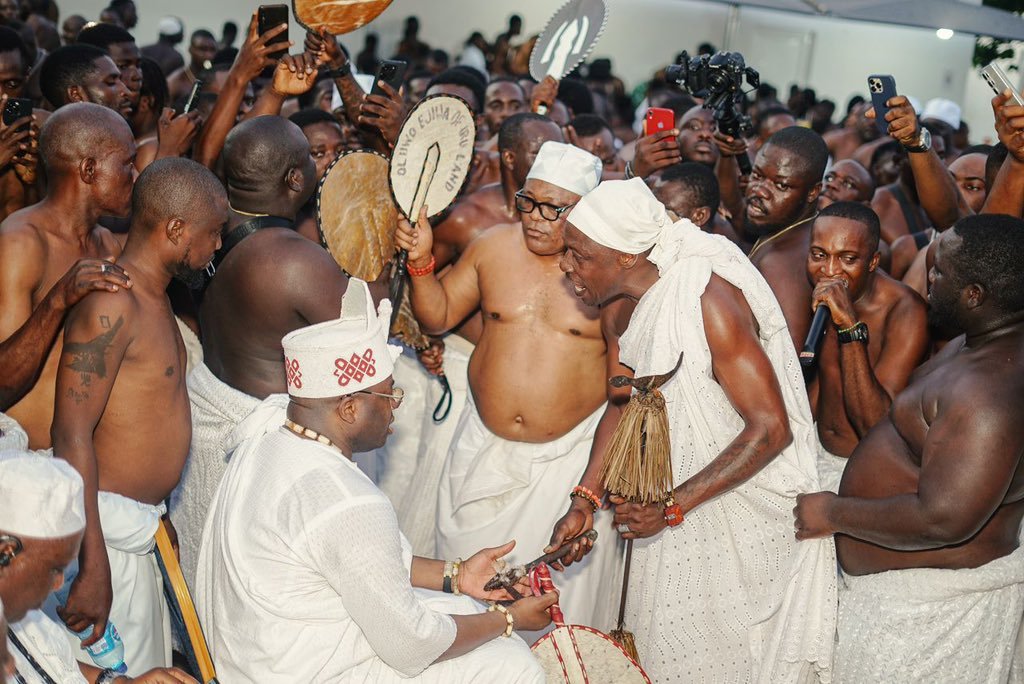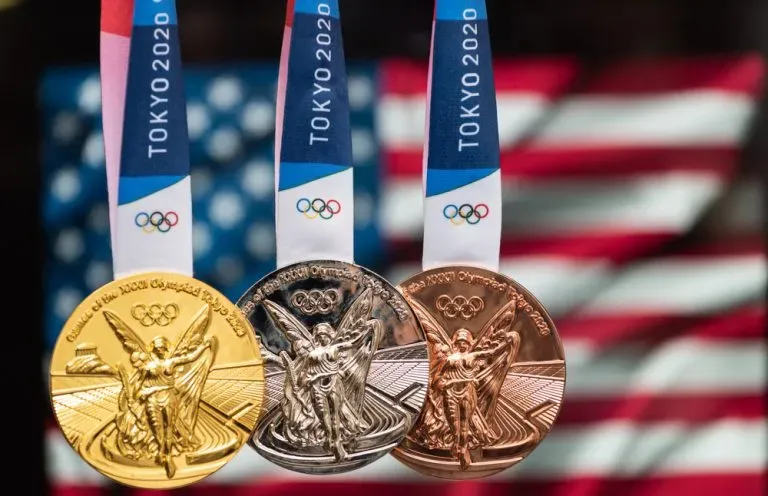The people remain the heart of any thriving society, serving as the cornerstone of progress, identity, and purpose. It is through their shared values, customs, and commitment to communal growth that society finds direction and meaning. This belief was once again reaffirmed during this year’s Ejiwa Elegba Festival in Ikate, a gathering that brought together tradition, leadership, and the enduring spirit of unity among the Yoruba people under the revered leadership of His Royal Majesty, Oba Saheed Ademola Elegushi (Kusenla III), the Oba of Ikate Kingdom. The annual festival, steeped in spiritual significance and cultural pride, is a symbolic expression of gratitude to the Almighty and the revered ancestors who have guided the community through generations. This year's Ejiwa Elegba Festival was no exception. It stood as a reflection of not only cultural continuity but also communal evolution, showcasing how ancient traditions remain vibrant and relevant in a modernizing world.

Read Also: Uphorial Sweatshirt

Hundreds of dignitaries, indigenes, and well-wishers graced the festival, led by monarchs from across the country. Among the distinguished attendees were brother kings, customary and honorary chiefs, and cultural enthusiasts whose presence added richness and color to the celebration. Their attendance not only underscored the respect held for Oba Elegushi and the Elegushi throne but also highlighted the significance of preserving and celebrating indigenous heritage across Nigeria. What stood out most was the community spirit that permeated every event, every dance, and every prayer offered. This wasn’t merely a gathering of people—it was a reunion of purpose and cultural consciousness. At its core, the Ejiwa Elegba Festival is more than a cultural commemoration; it is a bold declaration that the people are not just spectators of their culture—they are its living embodiment. This year’s celebration emphasized that the people are not peripheral to governance, tradition, or community—they are central. It is their engagement, their pride in their roots, and their shared dreams for the future that make the festival not only possible but also powerful. From the masquerade processions to the sacred rituals performed in honor of ancestors, every act symbolized reverence and continuity. These elements serve as a reminder that tradition is not static—it breathes, evolves, and endures through the people who carry it.
Oba Elegushi’s commitment to cultural preservation and the well-being of his people was deeply felt throughout the festival. His words and gestures echoed the message that leadership must remain people-focused. His Majesty’s ability to unite tradition with contemporary relevance reflects why the Elegushi Kingdom continues to be a beacon of Yoruba identity and strength. As the festivities concluded, gratitude filled the air—not just to the deities and ancestors but to the people themselves, whose support, enthusiasm, and energy made the festival a resounding success. The phrase “Ejiwa à gbé wà,” meaning “may the spirit of Ejiwa continue to uphold us,” captures the essence of what this celebration truly represents: resilience, continuity, and communal harmony.
Looking ahead, the success of this year’s event sets a compelling tone for the future. It calls upon all, especially the younger generation, to remain actively involved in cultural preservation. It is a timely reminder that while festivals like Ejiwa Elegba offer moments of joy and reflection, they also bear the responsibility of nurturing identity and sustaining collective memory. In a time when modernization threatens to erode indigenous practices, the Elegushi Kingdom stands tall, rooted in legacy, and uplifted by its people. The festival is not just an event—it is a movement. And at the heart of that movement are the people—custodians of the past, architects of the future.



